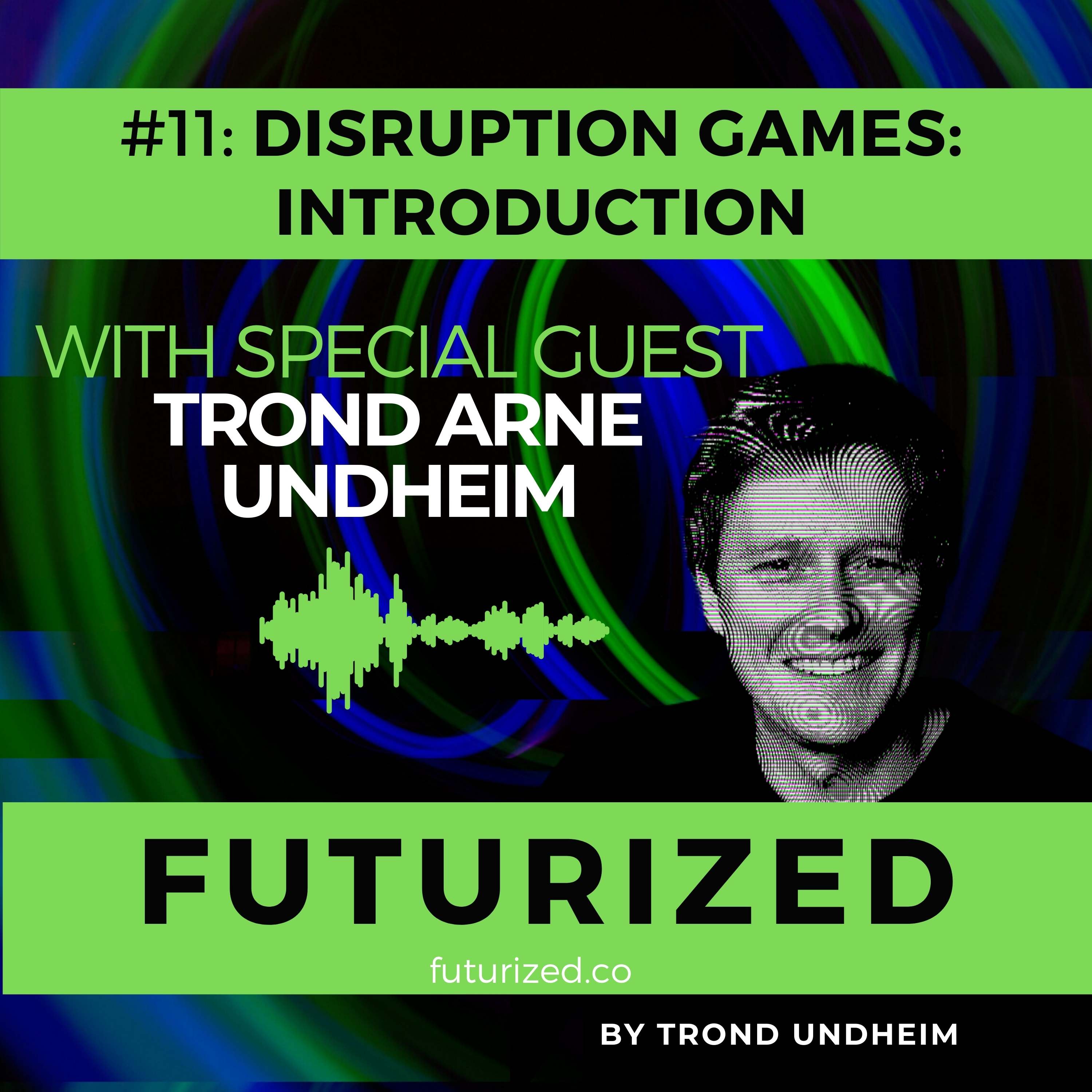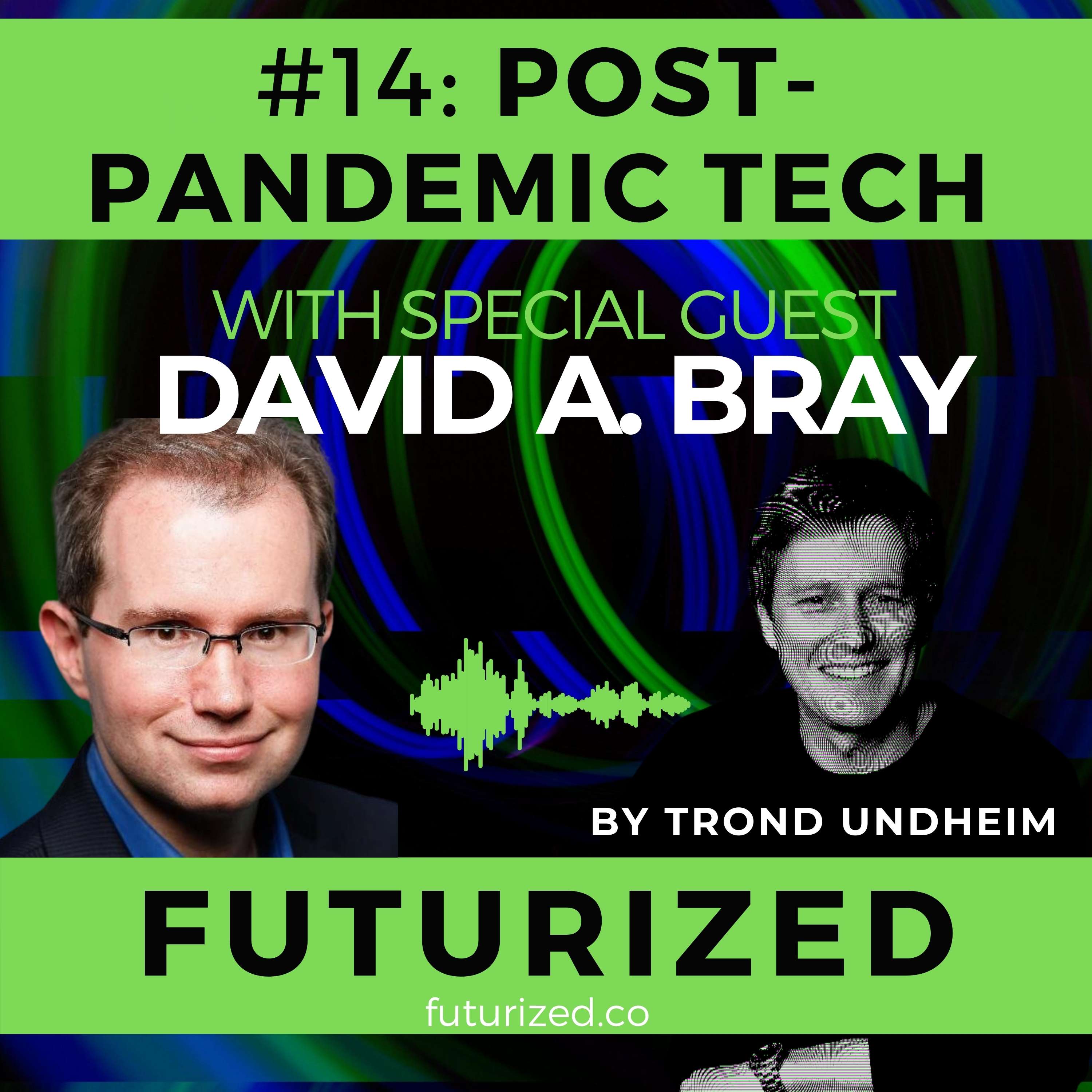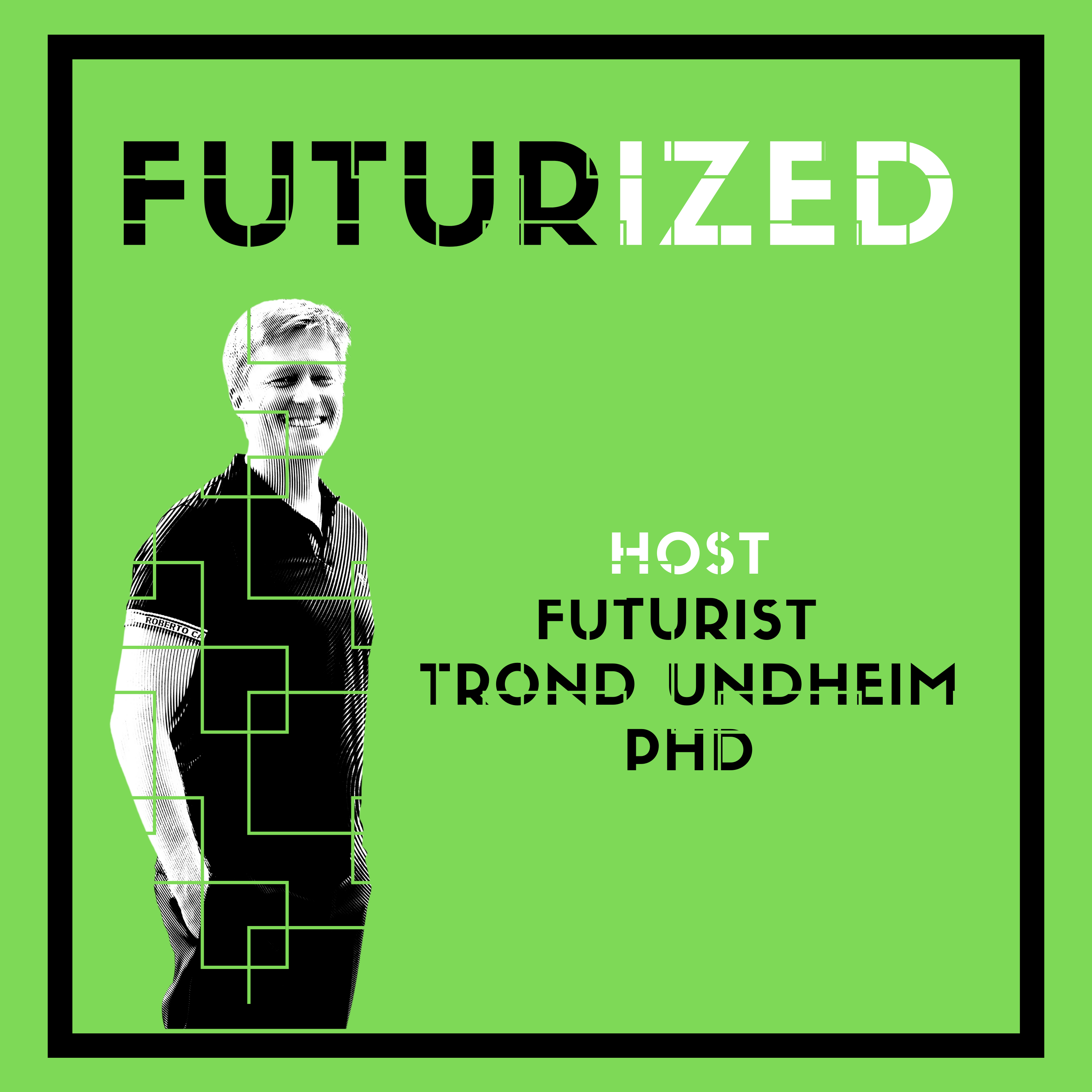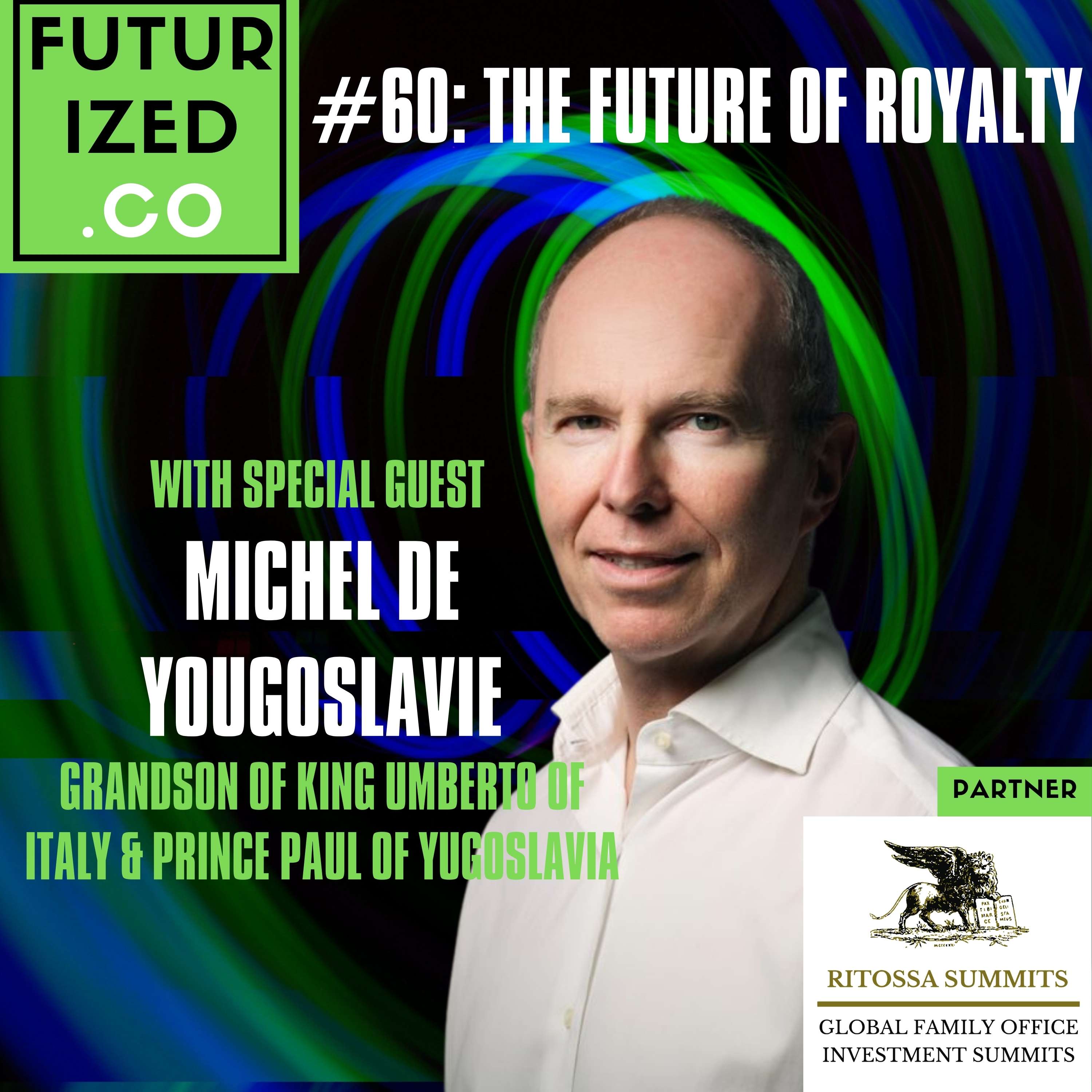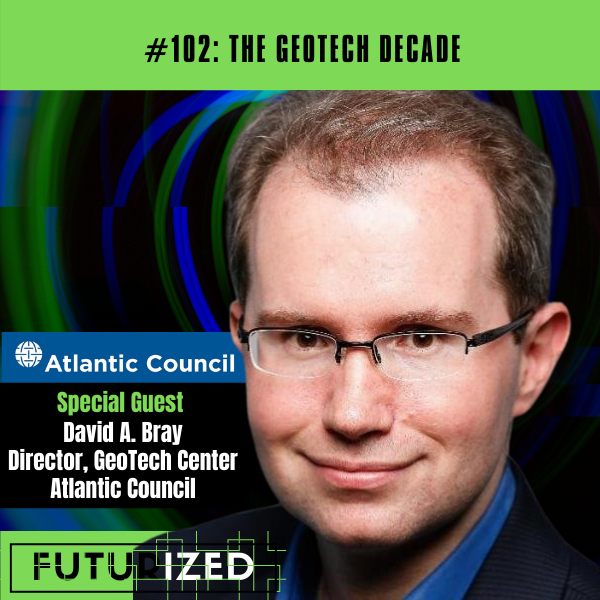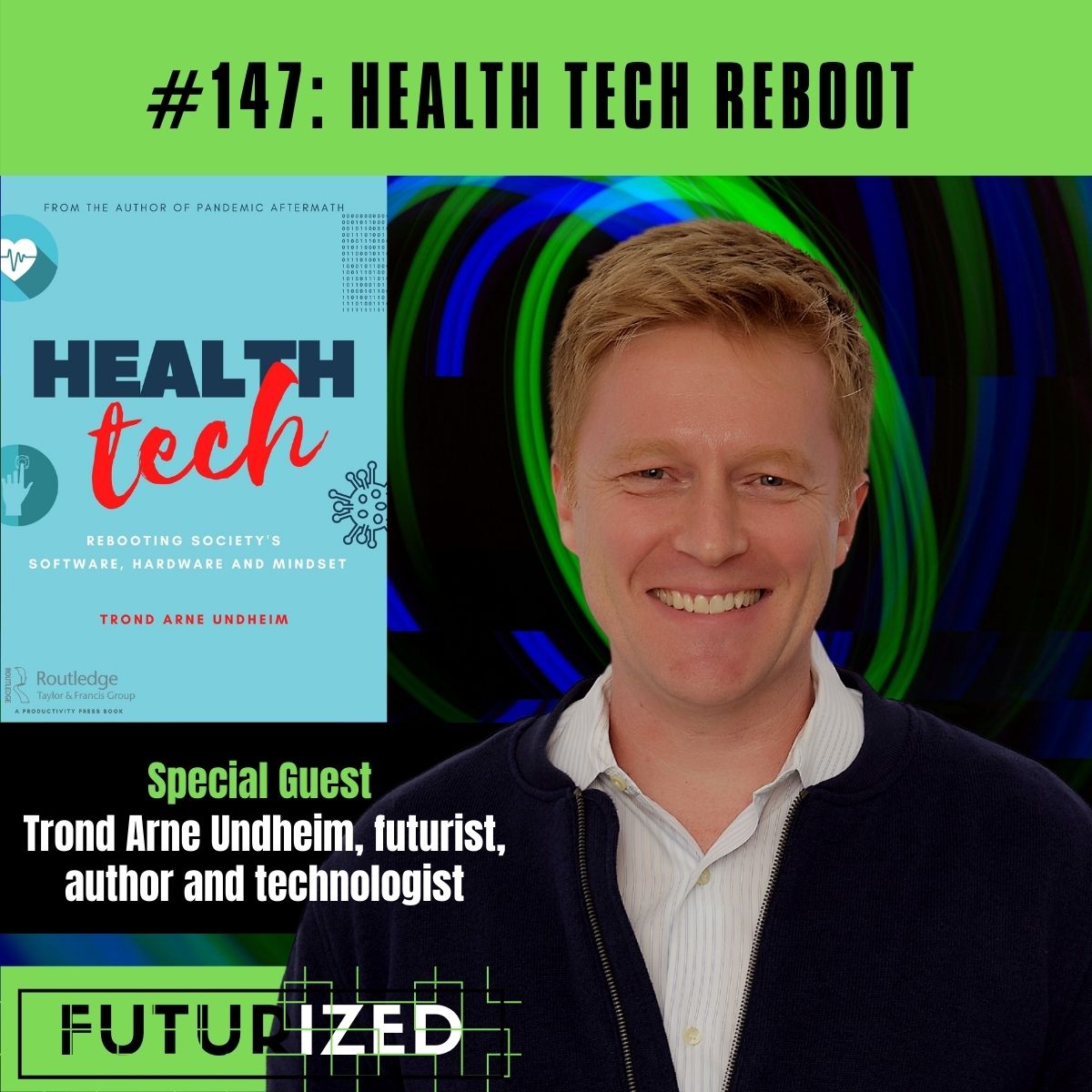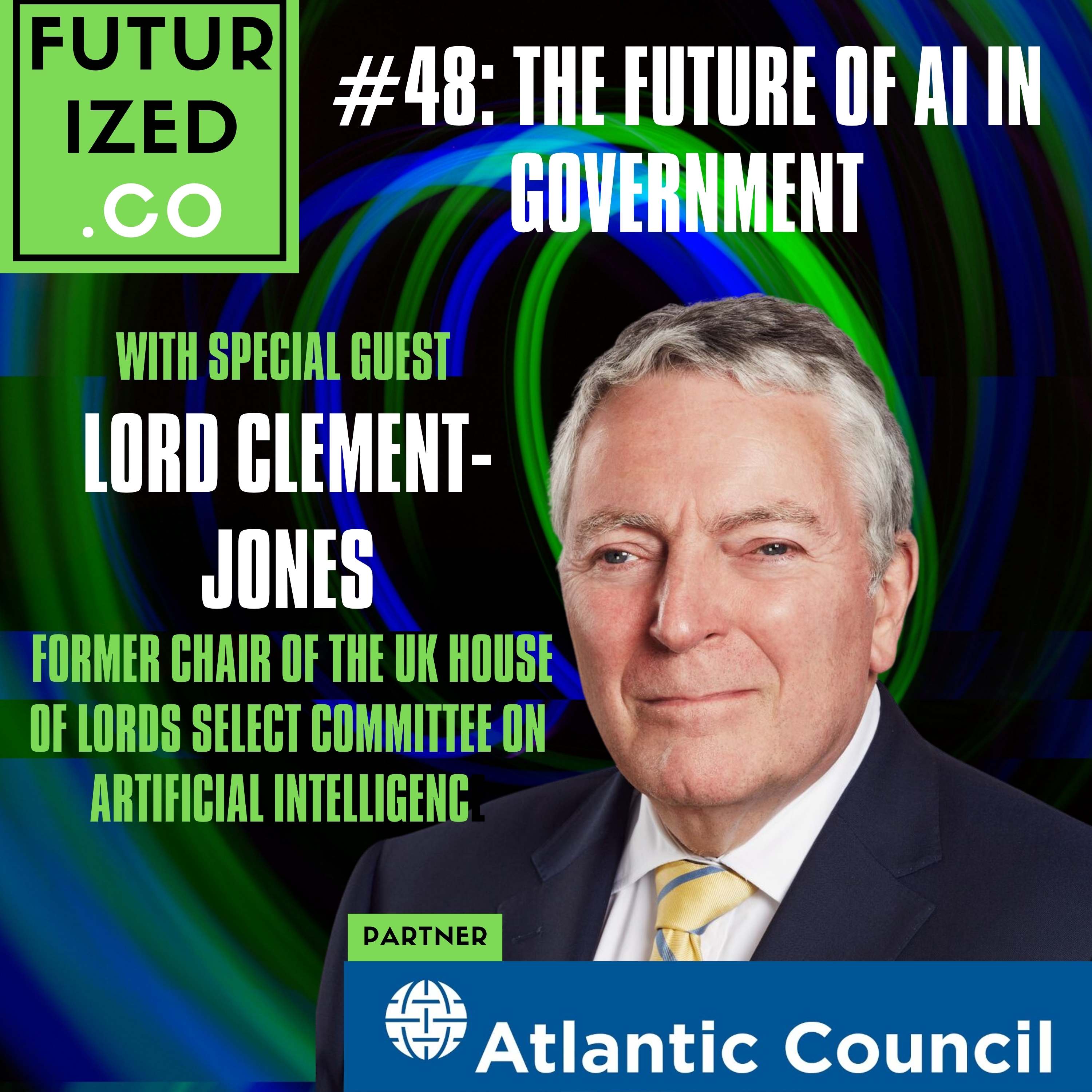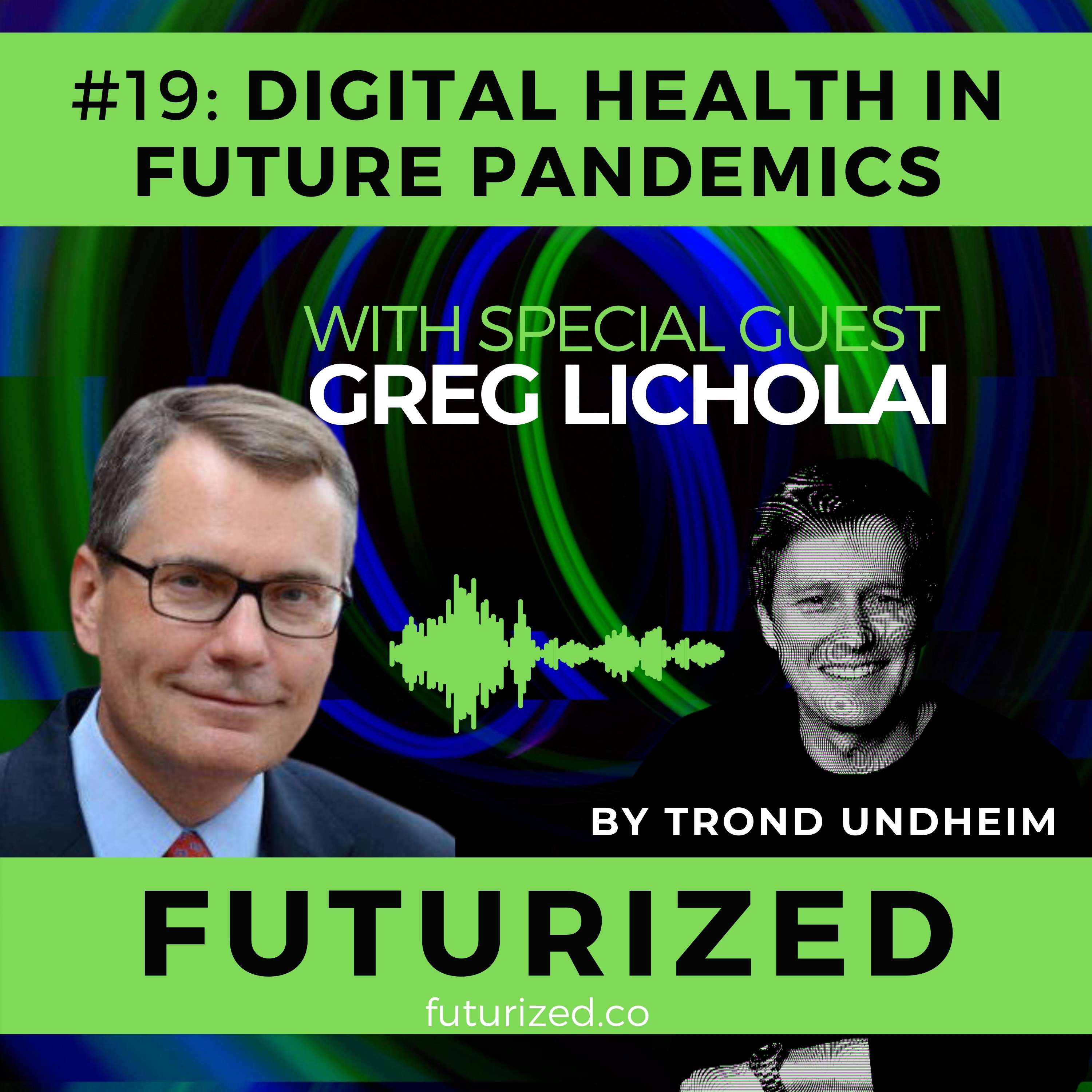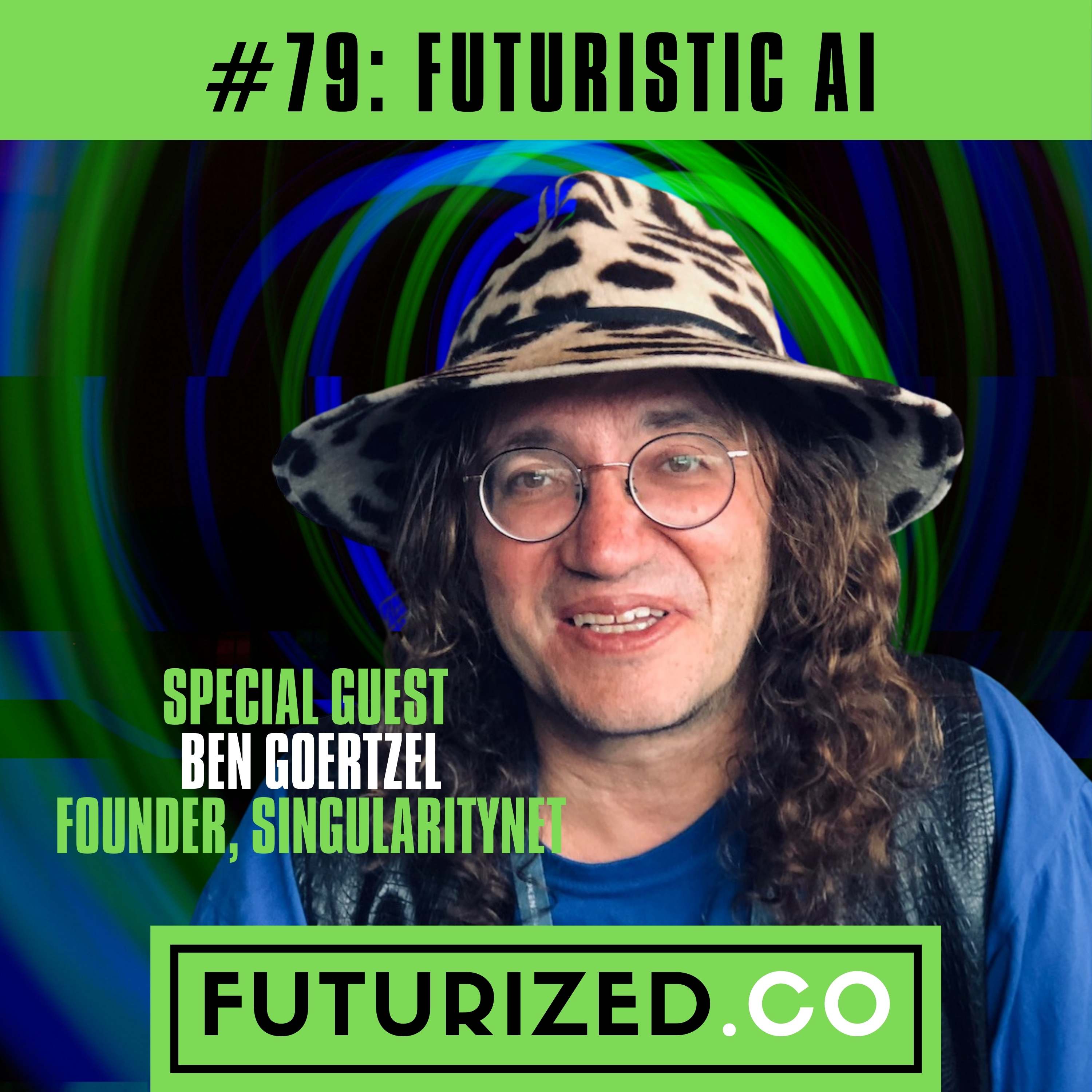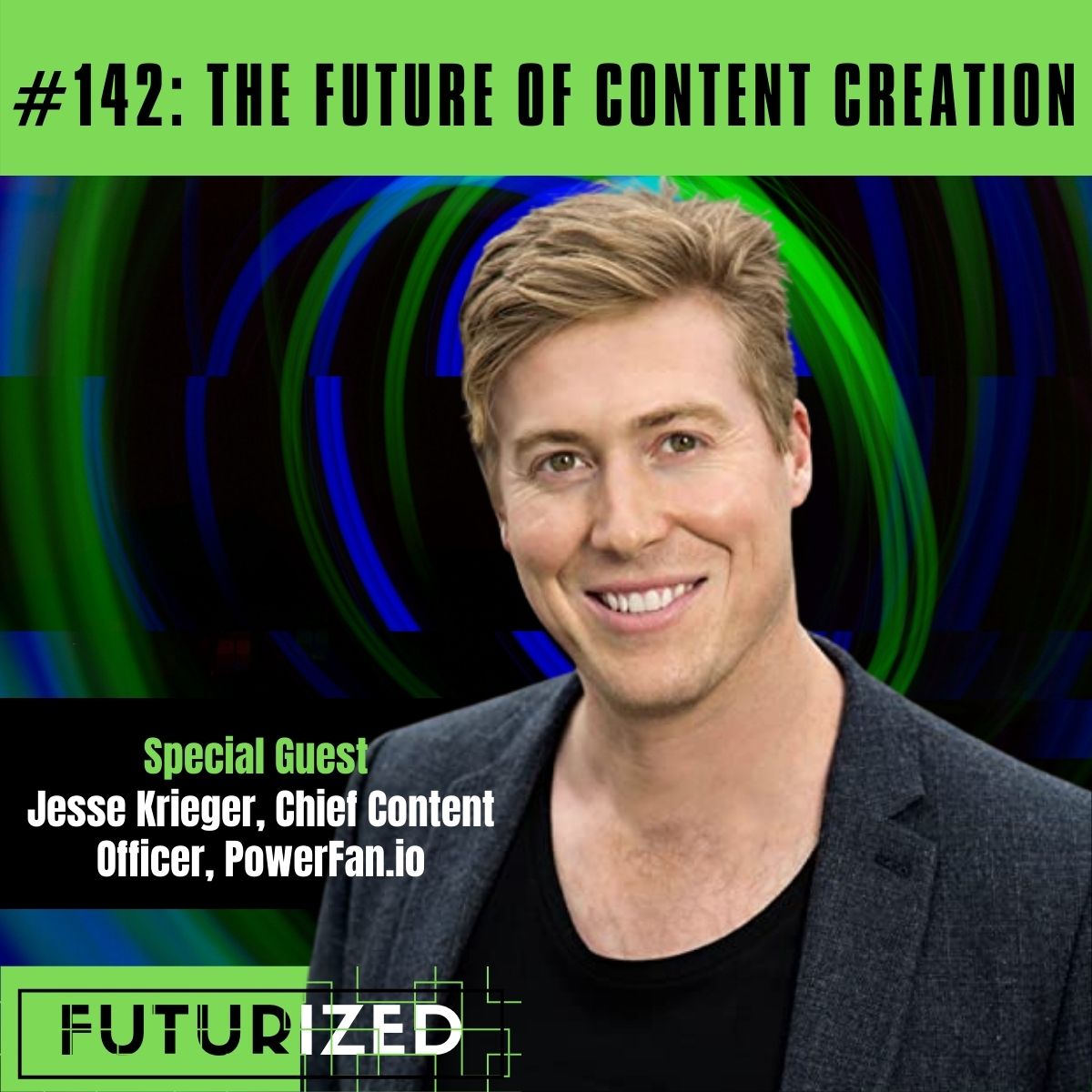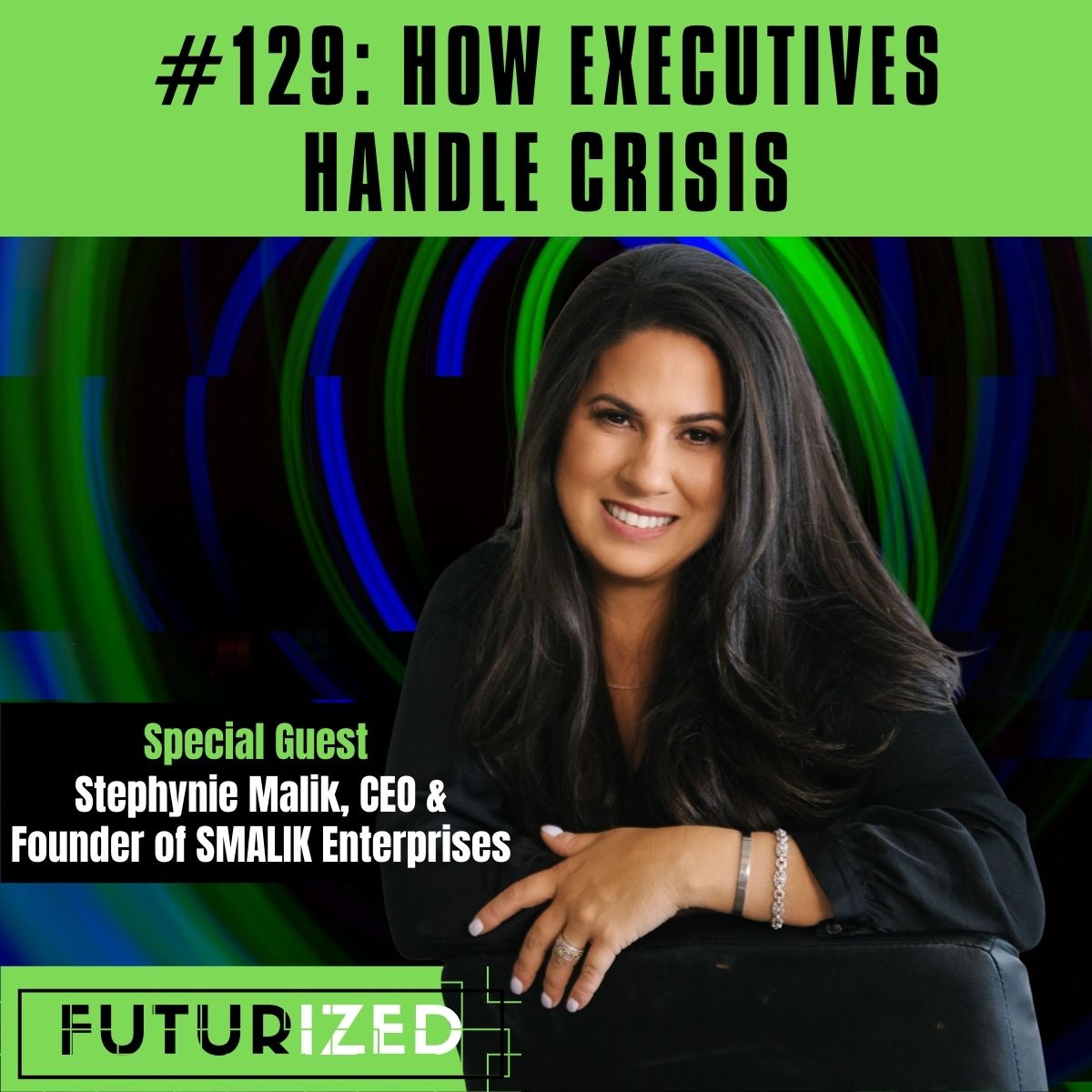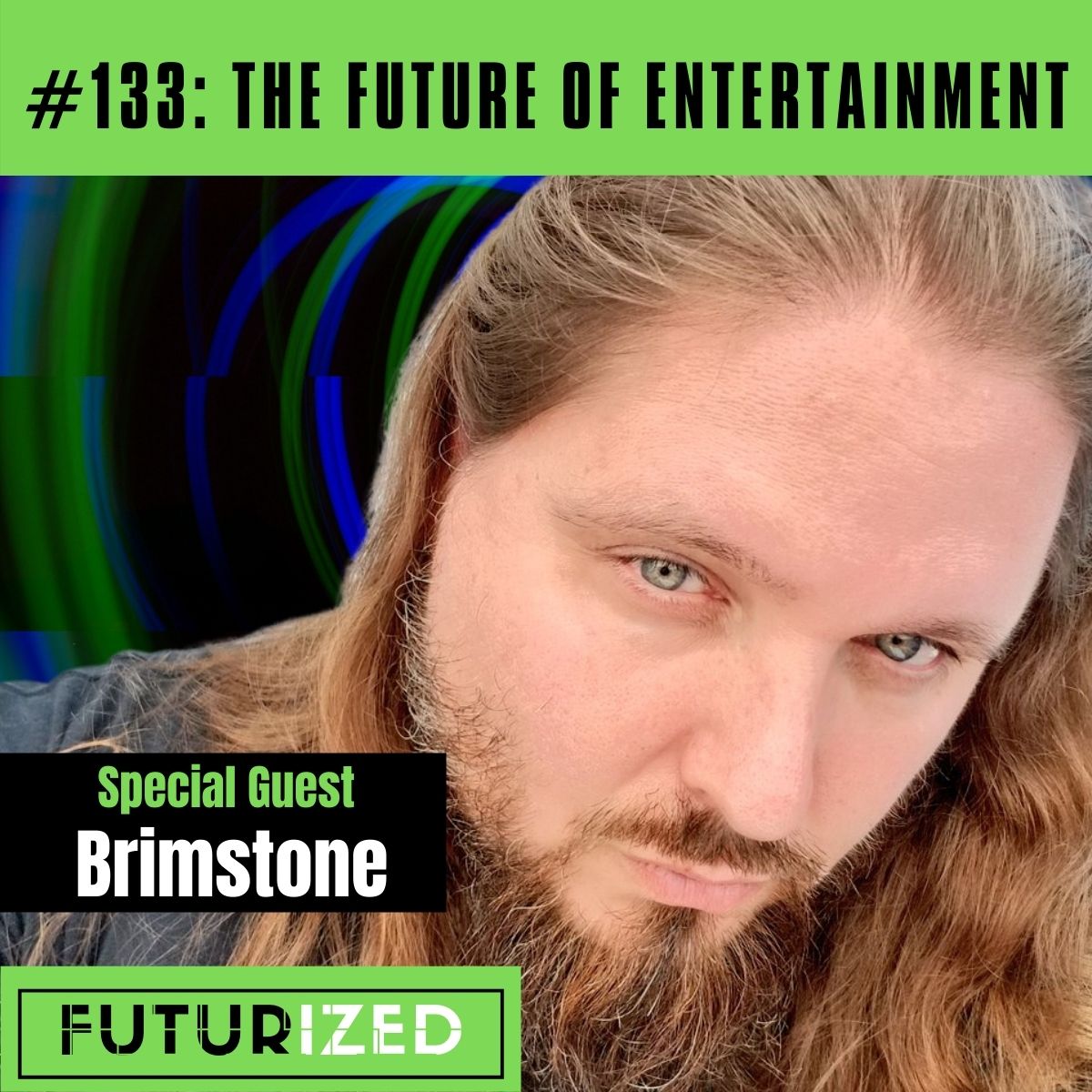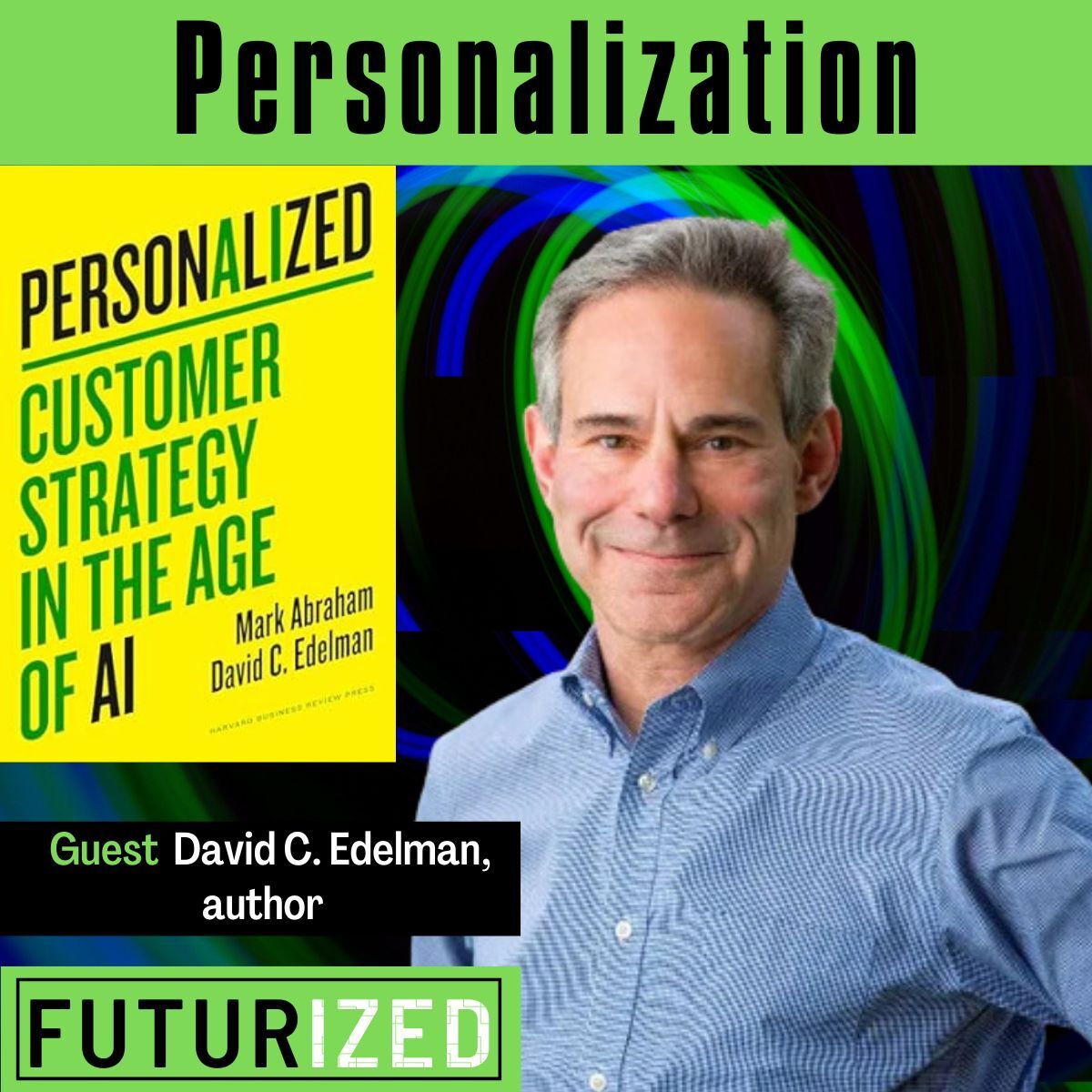The Future of Longevity
Dmitry Kaminskiy, Partner, Deep Knowledge Ventures, interviewed by futurist Trond Arne Undheim.
In this conversation, they talk about What is longevity and why does it matter if we live longer? Health span v. Lifespan. The Intersection of AgeTech, Wealt...
Dmitry Kaminskiy, Partner, Deep Knowledge Ventures, interviewed by futurist Trond Arne Undheim.
In this conversation, they talk about What is longevity and why does it matter if we live longer? Health span v. Lifespan. The Intersection of AgeTech, WealthTech and FinTech. The silver tsunami (of aging). Quality-adjusted life-year (QALY). Scenarios. Rise of policy scene for longevity. Biomarkers on the path to population health. How AI intersects with longevity. P4 (Preventive, Precision, Personalized and Participatory) Medicine. Who will first reach their 123rd birthday? A Manhattan project for longevity. The Longevity Industry 1.0 and 2.0—towards the next trillion dollar industry.
The takeaway is that longevity may indeed be the next trillion dollar industry and may perhaps be the most complex industry as well. Staying in good health is an important shared goal across the globe, and our health is constantly under threat from diseases, including aging. However, there is a drastic difference in the goals of increasing healthspan v. increasing life span. To my mind, there might even have to be a significant ethical debate whether life span is worth increasing on a general basis. Do we really need to live that much longer? Is there an optimal life span and does it depend on the available resources or the available meaning of life that the individual has at any given time? These are complex questions without obvious answers.
After listening to the episode, check out Deep Knowledge Ventures, Longevity 1.0, the book, as well as Dmitry Kaminskiy's online profile:
- Deep Knowledge Group https://www.dkv.global/
- Longevity 1.0 https://www.longevity-book.com/
- Dmitry Kaminskiy (@DmitryKaminskiy) https://www.kaminskiy.info/ and https://www.linkedin.com/in/dmitrykaminskiy/
The show is hosted by Podbean and can be found at Futurized.co. Additional context about the show, the topics, and our guests, including show notes and a full list of podcast players that syndicate the show can be found at https://trondundheim.com/podcast/. Music: Electricity by Ian Post from the album Magnetism.
For more about the host, including media coverage, books and more, see Trond Arne Undheim's personal website (https://trondundheim.com/) as well as the Yegii Insights blog (https://yegii.wpcomstaging.com/). Undheim has published two books this year, Pandemic Aftermath and Disruption Games. To advertise or become a guest on the show, contact the podcast host here.
Thanks for listening. If you liked the show, subscribe at Futurized.co or in your preferred podcast player, and rate us with five stars. If you like this topic, you may enjoy other episodes of Futurized, such as episode 55 AI for Medicine, episode 19 on Digital Health in Future Pandemics, episode 26 How to Write a book on the Future of Healthcare, episode 30 on Artificial General Intelligence, episode 35 on Augmented Reality, episode 47 on How to invest in Sci-Fi Tech, and episode 54 on the Future of AR. Futurized—preparing YOU to deal with disruption.
Longevity_mixdown
Trond Arne Undheim, Host: [00:00:00] Futurize goes beneath the trends, the track, the underlying forces of disruption in tech policy, business models, social dynamics, Andy and AARP. I'm your host, futurist and author in episode 67 of the podcast. The topic is the future of longevity. Our guests is the Maitri Kamenski partner at deep knowledge ventures.
[00:00:25] And this conversation we talk about what is LUNGevity and why does it matter? We live longer. We discuss the difference between the health span and lifespan and the intersection of H tech and wealth tech and FinTech. What about the silver tsunami of aging on the quality adjusted life year qualities?
[00:00:53] What are the scenarios here and the rise of the policy scene for longevity? Biomarkers on the path to population health and how AI intersects with longevity. We also discussed before that preventive, precision personalized and participatory medicine emerging and who will first reach their 123rd birthday.
[00:01:19] Dimitri argues. We should have a Manhattan project for longevity. We discussed the LUNGevity industry 1.0 and 2.0 towards the next trillion dollar industry. Dimitri, how are you today? I'm good. Thank you. Yeah, it's great to have you here.
[00:01:39] Dmitry Kaminskiy, Partner, Deep Knowledge Ventures,: [00:01:39] Likewise.
[00:01:41] Trond Arne Undheim, Host: [00:01:41] All right. So Dmitri, you are a entrepreneur and investor and you are deeply embedded in the field of longevity.
[00:01:48]I believe you are from Moldova and I have a lot of questions to you about how you actually got involved in the field of longevity. And if that's related to where you're from, if it's related to your educational background or it's something that you have been thinking about for a long time.
[00:02:05] So give us a sense of why are you so fascinated and why do you care so much about longevity?
[00:02:11]Dmitry Kaminskiy, Partner, Deep Knowledge Ventures,: [00:02:11] Actually my background is I T I keep and the programming, however, I know most of my business career was related to finance industry, actually to FinTech at the same time. Approximately seven years ago, I met several scientists who were working.
[00:02:31] In the Asian resource field now quite famous. And well-known scientists that time when I met them, I know to me what they told and what they were explaining, it sounded a little bit, I would say crazy and they do have food to eat. However when I proceeded to speak with them to explore the seals, they understood that in reality this topic of actual life extension, practical life, extension, human life extension, it does not that so much.
[00:03:04]It's some extent it's quite realistic. The only coalition how how it will be structured, how it will be administrated because one thing could deep science and the other thing it's practical, technos practical invitations, and with my absence of biotech or biomedicine background, but with my, some
[00:03:27] different law in the special team center, several quarters per week understood that probably will some let's say additional knowledge but at the same time high level of commitment towards more measurement or the port. Yeah. Probably I can apply some of them, get the beats and some let's say skills and plaster that I had some, initial capital, which I actually decided to partially withdraw from my previous business and to apply it to this new business.
[00:03:57] However because we have quite pragmatic approach to the business. We started with such force that we incorporated. Agent forensics agency in London. It was back in 2013 and this company actually became, core of generation of our knowledge and expert test field. And by the way our group is named deep knowledge group.
[00:04:18]Our investment
[00:04:21] recently, we established also longevity capital investment fund, specifically focused on knowledge everything's there. But this brand deep knowledge, it's not just for fun. We are considering knowledge and the expertize has the best possible asset in the business and more of it in longevity because it's over complexity.
[00:04:40] So it's the most complex a field that needs to be in human history. So that's why in all knowledge, it's essential, it's crucial. And that's why we have focused on genetic knowledge and with this company, agent contestation ship, during several years between 2013, two fall and 17 it was a Nigerian old just let's say tool to explore the field, to understand better were starting to somewhere from 2007 to 17, we started to make much more tangible, much more practically applicable research, specifically focused, not just on science, but also on business investment business analytics, and even such as uh, so we even start on the last practice for different governance in this field.
[00:05:23] Trond Arne Undheim, Host: [00:05:23] Dmitri, why do you say that it is the most complex topic in human history?
[00:05:28] Dmitry Kaminskiy, Partner, Deep Knowledge Ventures,: [00:05:28] It's the most complex futile science. So for example Shumate, you already, Nate's like tremendous progress in space exploration, which was at some point of time and they do the most complex let's say threshold then she made really extreme progress in, let's say negative shoulders in the, multiple other fields such as maybe, like there's specific appeals, like nanotechnologies and even biotechnologies, however, and especially in medicine in the sense like like healthcare, like dictating some particular diseases, however, this futile production medicine, longevity in a sense of with the focus on enhancement of performance of human system science as a, yet, there is a stage and technologists let's say there are quite like fantasy if not or regular in the market, many of them.
[00:06:22] You have to know, close to the market. And they also fathers are yet to come the next decade. And that's why the science of longevity is the most complex science the business also much more complex compared with, let's say business in biotech, instill
[00:06:39] Trond Arne Undheim, Host: [00:06:39] biomedicine. We'll get into the depths of that a little later, but I'm just curious about a couple of the concepts here.
[00:06:45] So I was going to ask you, but you actually defined it. What is longevity? And you seem to just now define it as some type of enhancement that does indeed have the aim to increase lifespan, but I've also understood that in this longevity business health span is sometimes equally important.
[00:07:04]And that's, I guess that's going to be my question because you don't longevity could be questioned, right? I could say, Hey, why do you want to live so long? That's a choice or it's an arguably whether that is actually a moral goal or at least we can discuss, but health span is a whole other story.
[00:07:20]No one can really discuss whether it's better to be in good health or not. So tell me about this tension in this longevity debate between health span and lifespan.
[00:07:34] Dmitry Kaminskiy, Partner, Deep Knowledge Ventures,: [00:07:34] Ah, yes. And yet there's a lot of, let's say opinions and different perceptions and a lot of discussions and even though absolutely different let's say opposite way of slow thinking and, let's say considering this but that was that even narrow tech, health brains and efficiency of performance of brains.
[00:07:52]It's actually probably the most crucial part of longevity because, to be of like in health body without working brains, it not make sense. So that's why extension of healthy beautiful performance of brains. It's one of the most crucial part of longevity as.
[00:08:09]If to consider like a technological flat extension now, just to extend artificially your life. Let's say to Sunday, significant timeframe like 128 years, 123 years, or even beyond, but to be extremely sick, no, to suffer from this, it's also not like scale. That's why of course when we are talking about longevity, first of all, our, in our opinion, this is shortly folks about essential, healthy period of life.
[00:08:37] And this is HubSpot, which is of course, opposite to lifespan. And there's that get when a healthy period of life and uh, unhealthier, you're the blank we should name daddy, disabled life heroes, and what is important than the case of supercentenarians. Most of them actually alleviate quite health it to the day they ended their life.
[00:08:58] And these shares them from no average people while leaving some of them quite long. For example, after 90 years or 100 years, even walking on five years, superspinatus sexually people call even beyond 110 years. But the point is that most of non-super scenarios they can live quite long, unfortunately are not healthy, during the last the keys just first of all, because their immune system is disintegrated more performance there.
[00:09:25]Medicine can artificially prolong their life, but it's not what we believe in you, normal lives. So it's like years we've suffered. And of course, when we are talking about elastic nurse about frontier depostion Advanced by medicine, preventive medicine, precision health, data science.
[00:09:43] We're talking about prolong that period of life when people are healthy and their immune system capable to maintain with the last, and meet their damaged different, issues, a mutation source so forth.
[00:09:56] Trond Arne Undheim, Host: [00:09:56] So Demetria, I wanted to go into some of the technologies in a second, but could you please first define the market for me because in your, so I've read your recent book.
[00:10:07] Okay. I believe longevity kind of 1.0, and I know you're working on some enhancements there to get it. You're going to issue some some more stuff soon. But you have some pretty bold claims in there, which I guess goes to what you were just saying that it includes all of these technologies and it, and as a field, if you would define it so broadly then of course it becomes a massive market because you're essentially including all the technologies that go into it.
[00:10:32] And it's a large chunk of the healthcare market as well. Tell us how you. Define the market of longevity now and in the future and how, where do you even find the numbers? I'm assuming you have almost come up with your own numbers because there aren't that many VCs yet that have taken longevity as their sort of sole purpose.
[00:10:52]
[00:10:52]Dmitry Kaminskiy, Partner, Deep Knowledge Ventures,: [00:10:52] First of all, currently there are several Dan's industrial fans, particularly focused on longevity topic, and there are several kinds of investing funds, for example, focused on narrow deck, which is, again, actually apart from Jay, there are probably several files and so fast focused at least partially focused on what could be considered aged deck.
[00:11:12]Trond Arne Undheim, Host: [00:11:12] So they call it either aging or health or but the term longevity is that increasingly being used as an investment term? Yeah. I
[00:11:21] Dmitry Kaminskiy, Partner, Deep Knowledge Ventures,: [00:11:21] will actually some from nations and actually know some evolution of this brilliant. And who is understanding what, where the started in this field, back in 2013, 2014, this field was mostly.
[00:11:34]Bring it in anti agent. However, this term was diluted by multiple, like strange companies who are promoting different, like magic creams for magic, or, capable to make magical kind of things, with your body to juvenile swarms before apparently the, most of them are in the best case scenario possible.
[00:11:52] So then they're not working, but maybe they're not although some of them actually currently now for the time approximately it happened around 2017 the actual progress in biomedicine, mostly by digital medicine, different amHealth mobile phones, wearables, more different kind of.
[00:12:11]Let's say devices, medical device. So the progress in the few became so apparent that many investors, decision makers, they actually started to be tangible attention that this, they're capable to extend healthy period of life and that, greater to extend actually lifespan or extend that life now around 2017 also this no, sometimes this shouldn't happen towards a particular, this tour I'm jaded yet because more and more people started to understand that from different cannabis scientists who were making the distortion agent resource, but they will start to because you have this
[00:12:53] then they invest. They started quite clearly from it that we are capable to extend human longevity. And then the, multiple media and even, politicians, they started to use this work. However back in 2017, 2015, it wasn't considered as an Institute. And at the same time, Let's say focus of multiple players who were most of them, I think in a different particular terms or Warsaw brands or let's say they had different perception how about most of them or get quite clear, why you're good.
[00:13:32] It became quite let's say practically applicable to consider that this is a separate industry. We'll have separate rules. It is much more complex compared to biotech or biomedicine. New approach, you data science techniques that required to, and the last two, make investment knowledge.
[00:13:48] So in case of, if you're considering from the point of view of investment, on the other hand in terms of scientists. So to consider just a biomedical biochemistry side of this public, it's not an app. So it's it's less about healthcare in a sense of security. It's more about, I would say management of human body in the sense that if you are become a CEO of your own health and your own longevity, so it didn't go for a lot of issues.
[00:14:18]We have a lot of problems, but also opportunities. We are heading a lot of you need to make a lot of choices in your life, what to do, what not to do. And for example, how to keep active with high-performance, but at the same time, know, not to overstress and what the cost is in a sense that there's a look of for regular on the market, but, and a lot of in the, let's say next year, during the next few years, you look an extent 10 years.
[00:14:44] And if you are a CEO efficiency of your own health, we need to be aware. So that's why you need to be also educated. You need to get you to have access to a source of information, reliable information, or tangible, practical information. And to go back to this what does it mean? And this was the greatest challenge for aging and stages to create the framework, which will be capable, in a tangible relevant way to analyze things.
[00:15:11] And we succeeded to do that. We will pay the framework and this book longevity is to 1.0. Define it the instance. So actually first of all, is providing this framework it's providing in a simple comparative simple, a way explanation. What is included into this scenes? What shall be included?
[00:15:29] What should we consider this part of Sydney and what should it be not considered? And our kind of an assessment is the size of the instance, 17 300. So it's actually, I could explain it with assessment of bank of America which assessing that the size of let's say aging population market.
[00:15:45]There are, did I hear that
[00:15:46] Trond Arne Undheim, Host: [00:15:46] correctly? You said $17 trillion, right
[00:15:50] Dmitry Kaminskiy, Partner, Deep Knowledge Ventures,: [00:15:50] in the next five, six years. It will grow at least up to 2017 years of doors. This includes first of all, a market of people who are now in retirement, there are 1 billion people globally. And you can consider them a seventh continent and actually, the wealth has gone because many of those people, they're not just old, but they also have the biggest wealth assets.
[00:16:15] And that's why this market boastful, becoming the most interested for asset management forums and community private wealth debt. Now on the other hand, of course this includes biomedicine aged deck and on multiple other fields in the world. And then they added Jim if to include so this is they let's say they conservative assessment because if all the capacitor full of health care systems and pension systems.
[00:16:42] No longevity, financial instinct components. So in the narrative will be, it must be one of them, 20 students, I think more than days. However,
[00:16:51] Trond Arne Undheim, Host: [00:16:51] no, because you talk about the novel financial system related to this. Like they're basically there's longevity index funds and hedge funds, and you're imagining that there could be stock exchanges and entire kind of financial instruments, completely dedicated to, to, longevity trusts and even like age tech banks, and like all kinds of financial products that you, I guess you're envisioning should be geared towards this sector.
[00:17:18]You also talked about, talk about you call it a geroscience, R and D. So in that you put all the rejuvenation stuff that we were just talking about regenerative medicine, but also like even things like nutraceuticals. So like non-regulatory. Interventions and, but also more like medical therapies, like preventive, personalized diagnostics and things like that.
[00:17:40]Cognitive enhancement seems to be, part of, a much broader notion of age tech that you have. I'm looking here at this cube at the, on the first page of the book. And, you say it's simple and I'm sure to you it is simple because you have structured an enormous amount of information.
[00:17:56] But when I look at it, it's literally a cube with I don't know eight by a 36 fields that are all intersecting. This isn't very simple.
[00:18:06] Dmitry Kaminskiy, Partner, Deep Knowledge Ventures,: [00:18:06] Exactly. So here's the point. When education is aging recitation. So what's graded during the first several years we were analyzing, we were trying to, the last is a huge geroscience, budget native medicine using quite typical approaches, which are quite common and by biotech, instant biometric.
[00:18:29] However, the more we were analyzing this field the more we understood that, we are lacking with we have some gaps because a typical approach for analysis, especially for investment do not make sense in the sense that it's over complex in a sense that you need to take an account much more components and even dimensions.
[00:18:49] This is why eventually we started to apply so-called multidimensional vector space. So for different different objects and some, certain fields in this over complex environments. So we start to apply quite advanced data science techniques. One of them is quite well, simple, fun standing for actually data science, which can demand which is need a multidimensional vector space.
[00:19:14] And for that, is this in this in this field for, let's say specifically they complex segments for this industry. We are applying let's say free for, and literally in some cases, six of the national structures let's say dimensions to analyze some object, for example, competence as the genetical objects a blank some even visual features this is give some us opportunity to use more advanced let's say dashboards or more advanced visualization systems.
[00:19:44]Which again, gives a human artist, some additional insights, how to apply more advanced, mathematical methods. So it's like combinational Bureau with medics, with human therapists and then big data analysis and data science, machine learning, and know advanced visualization. So we are using like all affordable, let's say accessible for us techniques to analyze facility.
[00:20:07] But with that, actually it's becoming the level of analysis becoming relevant in the sense that we are cabled on the lines. And for us, this over complexity stopped at some point of time, I think around two years ago, we understood that for us. It's very complex, but it's understandable.
[00:20:25] No, we cannot understand. We cannot, unless we can. Profile, we can make snapshots or these team on the entire scale of the global scale and that,
[00:20:36] Trond Arne Undheim, Host: [00:20:36] sorry to interrupt you. You got a little oppress for I wanted to hit on two things that you got a little press on. One was I think you, at some point had an algorithm running to analyze these things called Vetol validating investment tools for advancing life sciences.
[00:20:51]And you've got some headlines in the UK for being the first company that put an algorithm on the board of directors or something. What was that about?
[00:20:59]Dmitry Kaminskiy, Partner, Deep Knowledge Ventures,: [00:20:59] Literally it was, first iteration of the system, which we are using now for another. So this longevity, initially it was for biotech Institute was a little experimental system.
[00:21:11] By the time it was quite advanced. You have to consider now it was very simple. So probably now with her son and generational with system and technically it was information from multiple sources in partially Cena eponymous way. It was profiling them. It was given a lot of data boys and we were a blank big data narratives at the time.
[00:21:33] It was 2014 in artificial intelligence was quite simple. I'm in traditional tennis. Our grips or capabilities were quite simple by now they like evolved significantly. So that's why what by that time was 16 change in terms of, software or some kind of technical. I know it software digitalization for graphics challenges not became a, in many cases, radio the sheriffs or, and the system of wolves, however, we were thinking to apply for investment fund and the idea was not to operate in biotech and steel.
[00:22:09] However, as a nation, within a couple of years when the students that biotech can see, it's not instant for us, specifically, longevity is much more interesting. However, much more sophisticated systems required. So there shall be a black much more vast data science techniques, much more than no specific software solutions.
[00:22:30] And I think that we made quite good progress. And actually in the book, it's source mentioned that we in the next several months until the end of this two fall and 20th we are launching several specialized dashboards, including, for example longevity, investment analytics longevity, financial Institute, and longevity governance dashboard.
[00:22:48] So it will be partially free of charge. There'll be some quite a lot of information, for example, in case of longevity, investment dashboard they'll be on that ethics about approximately 50,010 to this ingredient companies and the investors. And we will provide some of that information free of charge however for their professional participants for grabber, for investments, we're actually aiming in all to generic profit.
[00:23:13] So it will be already a proprietary commercial solution. And It will be ready for Monday. However, once again, for our approach for patient realizations to that because that this Institute will evolve, it will be better structured, better. More people will be educated and will have access to more information, better structured information.
[00:23:34] So this is why quite a lot different it was our mission approach during seven years to publish quite a lot of I'm going to put reports free of charge, open with open source support. We're going to make also proprietary reports. I'm not sure it was and this big data dashboards which I actually know seminar information that you'll diamond, even outputs and some, some insights and some especially there will be quite a lot of infographics.
[00:23:57] So people even without specific a general sense, but viewing some, a figure, some graphs. Some diagrams, they will be able to understand, to know general inputs quite easily. And talking about the decimal score, a new commerce in the sense that, for example, they were previously, let's say real estate.
[00:24:16] And now because of pandemics, this do not make sense not to proceed to invest in those centers. However life and health longevity. This is the most precious asset. It's much more beyond than actual stealing assets.
[00:24:31] Trond Arne Undheim, Host: [00:24:31] That's great. We'll talk a little bit about the future, but I wanted to just briefly go back to what kind of got you started.
[00:24:37] Tell me about your portfolio company in silico, because I believe you were instrumental in getting that, that company going and tell me how you got involved with them and what are they up to.
[00:24:47]Dmitry Kaminskiy, Partner, Deep Knowledge Ventures,: [00:24:47] Actually people behind this company. Yeah. They were one my daughters who actually, and you can ask me know to get into the skill to, for longevity of the company was started back in 2014 and we were the first investor into the company recently.
[00:25:04] So instead of commits and actually by our opinion number one in the world in a plant shutdowns for drug discovery, and they made a tremendous progress in the field, specifically, a plan deep learning can dance, generative adversarial networks. This is like the forefront of deploying itself.
[00:25:21]Let's say next iteration of official teller system for the dragon scholar. But what is more important recently they made a spinoff called deep longevity in this company has focused on biomarkers of aging project. This is the most crucial, the most essential part of. Sort of development. However junior class years, we also support a number of other companies, one of the most recent.
[00:25:45] And I would say, interesting and promising project for us is this longevity bank account. So this this card has already launched in the case or a weeks ago, the public launch will be Seneca standard but the end of November in the UK and Europe, and they have plans also to expand to us, I think in quarter two, 2021.
[00:26:05] Trond Arne Undheim, Host: [00:26:05] And what exactly is it? Longevity bank account, what do they do?
[00:26:08] Dmitry Kaminskiy, Partner, Deep Knowledge Ventures,: [00:26:08] So
[00:26:12] future panic longevity bank. We will be focused our investment pharmacy to get to, it will be the initial bank and actually to force myself on the project during the next years. Whereas longevity bank targets fills the issue trial product. Which is actually a spinoff from one of our companies.
[00:26:31] And it's basically it's FinTech project focused on health tech on the shoot tech and aged deck. So it's considered like quite advanced FinTech solution, but actually this banking card master it's MasterCard named , which giving access for their users to the marketplace where assembled several candidates relevant products and services.
[00:26:55]And there are some differentiation, for example, for UK market, for European market, for Germany, for Spain, or there are some, specifics, but yes, of course there will be additional specifics, but overall it's for people who do understand what's the new FinTech, it's like quite advanced FinTech marketplace.
[00:27:11] Anti users. First of all, they are having access to validated, relevant, created products on that marketplace for services. But also there, they can have quite all of discounts and rewards as well, because then they're delivering those products. They know to stimulate people, to stay on that marketplace and to use those products.
[00:27:30] So that's why they are interested to deliver scars.
[00:27:34] Trond Arne Undheim, Host: [00:27:34] Demetri this topic intersects between a lot of different disruptive forces. We've talked about some market forces and business models that are coming out of this. We have talked a little bit about the technologies. Now you mentioned all these different countries that clearly are interested in taking care of their population, even before COVID right.
[00:27:53]Health and longevity was an aging obviously is a focus of various countries. You've been involved in UK policy making a little bit in, in this space. Tell us about how, how you got involved with that and what exactly you've done in the policy space?
[00:28:07]Dmitry Kaminskiy, Partner, Deep Knowledge Ventures,: [00:28:07] Yes. 2018 so far, probably even 2017, I also go to Walton to the work of group on artificial intelligence and a group on blockchain in the UK.
[00:28:17]There are a group of parents are super supportive of his blood banks. They created such groups and they also, communicating with a group of different people who are also interested in this field. So with another electrical subsidiary, a local agent and his agents, we profiled the entire EIT, new UK to you.
[00:28:35]And then blockchain, we again, and we delivered that reports with mind maps, quite comprehensive reports to those parliamentary groups now, because of the experience we actually discussed with some our friends and partners who already were in the wolfs and some policy, activities in the UK regarding health longevity, preventive medicine to establish the same let's say to initiate, to support established of similar group, but on longevity, And to our suppress that initiative.
[00:29:05] So first of all, we incorporated international UK and that company became
[00:29:10]But what was actually surprising to us that we got they came positive feedback at the very initial stage from a number of diners and members of house Wars who support this initiative. It was established very quickly and quite practically. And it got quite a lot of, eaters from multiple let's say stakeholders and, different players, including insurance conference, investors different like a lot of science, a lot of, just activists in this field and this this group actually such initiative on there.
[00:29:40]Really a policy making level is one of the, one of the few in the world. I would say that there are quite significant activities of similar level in Singapore, but probably you can't Singapore, the most in the future in terms of, the national stage showing health longevity.
[00:29:57] And by the way, just in case on the 11th of November next week, there'll be second longevity governance. Simon are gonna asked under umbrella, this app, Joel and JBG we support the international gate. So they will discuss topics, how different countries are addressing this issue of aging population.
[00:30:18] Some of them are, just reacting, let's say the this only in the reactive mode and some gallons, some kind of, some nations actually, forecasting this problem. And they also on realizing opportunities because there's the problem patient population, but there's also extreme opportunity of health RJ and the nation, which will actually, use this opportunity.
[00:30:39] And it will become not only the best nation in terms of providing their citizens with most precious, benefits in a sense of health longevity, but also because of health longevity with their nation, that nation will almost undoubtedly will become quite prosperous in terms of, financial prosperity last.
[00:31:00] Trond Arne Undheim, Host: [00:31:00] I'm curious if you haven't been in touch with Japan in that regard, right? Because they have a massively aging population and their wealthy nation, which has felt this problem. So I would imagine that you could have a conversation with them.
[00:31:13]Dmitry Kaminskiy, Partner, Deep Knowledge Ventures,: [00:31:13] Let's say, a quite significant part of speakers that longevity garden sign it.
[00:31:19] There will be, it will be people from Japan including science and
[00:31:25] So I would say Japan is very active in the field. They do understand, first of all their government and their nation doing a stance that policy makers, they do understand that this is tremendous issues for, for their country. This is for a second. They don't understand that they need to develop a
[00:31:41]They collaborating with number of Candice , exploring the experience of other counters of other nations, how to structure this new station, new industrial standard. And I think that probably in the next several years we will see quite interesting, develops in Japan on this matter.
[00:31:57]They, they have some, some, let's say specific national culture issues in the sense that they're quite, conservative maybe to some extent, tragic however at the same time they are quite tangible, when they make some decisions today pursuing them. So that's why I think there'll be number of nations in the next two, three years.
[00:32:15] We'll see what are the, on the level of their content, they'll be for me, very clear agenda, what to blur, how to do, and what the particular standard in terms of natural . Got it.
[00:32:32] Trond Arne Undheim, Host: [00:32:32] The things that I thought it was interesting is, we're talking about this topic at, and right now on a national level, a national strategy, we have talked about it as a business imperative.
[00:32:41] You can earn enormous amount of money here. It's also obviously a personal challenge and you put out a kind of a personal challenge in the media a while back where you pledged a $1 million prize to the first person who was reached her 123rd birthday. Can you tell me about that initiative? Why did you pick 123?
[00:33:02]I'm digging into history here and it seems like the world's oldest person almost made it to one, 223. When do you expect to pay out this prize and which, where would this person be living in your prediction?
[00:33:18] Dmitry Kaminskiy, Partner, Deep Knowledge Ventures,: [00:33:18] I don't know where the person will believe it because, I think that are you
[00:33:21] Trond Arne Undheim, Host: [00:33:21] tracking the candidates?
[00:33:23] Are you tracking the candidates? Because surely there aren't that many.
[00:33:26] Dmitry Kaminskiy, Partner, Deep Knowledge Ventures,: [00:33:26] Yeah. So one year ago made special case study on that all super synchronized. Now on a, several kinds of super United school launch lift the most, the plus to that, suitors, not as squad, the most active like physically or socially.
[00:33:45] And yes, we all have them. And I think that person will believe in console both on JV today. I can predict in the next three, five years there'll be number of thousands or maybe even scan most like it will be small Connors. I would foresee that Switzerland may become a one of those cards.
[00:34:04] And I think that person, most likely will be leading in such a specific environment will be extremely good. Let's say nature pure environment, but also quite advanced science technology and multiple other components required for more excellent. Leading. Now we'll go back to the press.
[00:34:20] Indeed. She was living in Paris. Should that back in 1997 at the age of 22 years and six months it was 23 years ago. Apparently you can understand the students this last 23 years, the progress in biomedicine we'll just manage apparently she had a very strong predisposition for like genetic predispositions for extra long bleeding.
[00:34:42] However, of course that's again, logical, if she would be leading it now I will have to pay for all this press. And because apparently science medicine will be able to prolong for life, at least one kind of 23 years, most likely to up to 125, even more. And the idea of the press, because it was a back and forth 50 extra to, to promote this idea that there were people who live there long and and it was even not in 21st century.
[00:35:13] It makes sense to consider that people will leave. The diverse life expenses will be a years. It will be 20 years, maybe 25. And the more they will be the progress in science technology. The higher will be this expectation about estimated life expectancy.
[00:35:30]Trond Arne Undheim, Host: [00:35:30] I think it's interesting to think about if you think about the past, there are stories, obviously are people who lived an enormous long time.
[00:35:36] And if you go back to the Bible and other places, there, there are these anecdotal evidence about people who lived for a very long time. Is there any evidence of, people who have become 120 plus years that they died of very preventable diseases today? In other words, if you had intervened with the 2020 medical establishment or even the 10 years before they died, had started to put them in the right place with the right technologies and the right doctors or the right, whatever it is the right way to eat or whatever it is.
[00:36:08] Could these people, these individuals in your estimation have lived another decade, just purely based on some extra monitoring. This is speculation, but it's just interesting.
[00:36:18] Dmitry Kaminskiy, Partner, Deep Knowledge Ventures,: [00:36:18] Yes. So let's say technically speaking, we don't have yet enough information and enough data. However we know we can blast some logic.
[00:36:28] And I would also probably, I would like to collect here such storm which is needed escape, the loss and also technology agents level. If the person will succeed live another 10 years during the next 10 years, multiple technologies, which are now not the after eight year then developed, but the unit next to them years, they will pick up related to market.
[00:36:53] So their technology readiness level will increase, they will become let's say practically applicable, especially to human longevity. That means that the person calls succeed belief additional next 10 years, we'll get excess to actually abundance of new technologies. So now, for example, in 2020, I do have access to quite a lot of let's say similar kind of stuff, but in the next 10 years, in 2030, I will have access to several funds of takeovers and those files.
[00:37:22] And most likely will guarantee that I will live in that initial 10 years. And during that additional between 2014 and 2014 Different their specific end goal safe solutions for not only. Preventative medicine which will be able to protect us from a specific age ledges, for example, such as cancer diabetes, but also slow down aging, biological agent, and most likely even reverse aging. And that will be the point of achieve local escapable loss.
[00:37:50] Whenever, when you are leaving one additional year your their progress practical progress is getting so much additional technologies that it gives you an additional one year, for example, one day. And this is, growing with let's say, increasing curve. So that's why like technically speaking, maybe, we will speak in the next three years, we'll speak about normal life expectancy 30 years or maybe 150
[00:38:16] Trond Arne Undheim, Host: [00:38:16] Dmitri that this is fascinating, but it does bring me to one question if.
[00:38:22] Progress, according to what you're analyzing, with current investment is going to reach that kind of escape velocity. Why then have you proposed like a Manhattan project for longevity? It would seem to me that if your analysis is that already. We are already in various ways. If you just start collecting the data, there are startups, there are organizations and just regular medicine.
[00:38:49]The development of public health is moving in this direction. Why then have you proposed because I understand in various fora you have proposed that there should be almost like a Manhattan project for longevity, is that even needed? And is that more to focus the attention or is it because you think there are some specific, big challenges that we're going to S similarly to this escape velocity argument, we're gonna face perhaps some big obstacles, some sort of future COVID disease or whatever it is that's going to need a much higher level of investment compared to even the description that you just gave me now.
[00:39:26]Dmitry Kaminskiy, Partner, Deep Knowledge Ventures,: [00:39:26] Yes. This is quite interesting questions, very important questions. First of all, because of COVID pandemics, we do see that multiple instances that actually, facing extreme crashes they're, decreasing they're stagnating they're collapsing. However, when it comes to biomedicines, especially preventative medicine field they are now facing, could really bounce some investments.
[00:39:45] This is one of the very few industries which actually wonder rise and many reasonable that's what's now switching attention from other industries, small slap some something like real estate or to reason towards a particular biotech until, advanced biomeds. And there, this is in that sense, the spontaneous crisis, actually to some extent it's for good now from our opinion, indeed this achievement of escape velocity for people will favor change.
[00:40:13] Let's say for people who are now 14 most likely probably because there's already quite a lot of investments in quite a lot of attention to biotech, biomedicine, even longevity specific topic. So they will achieve, evolution in the sense without any additional and old let's say support or exploration maybe in 10 years from now will be indeed advanced those reports.
[00:40:35] However, we are talking about why not to make it in instead of STEM years, wanting to make it in seven years. And our next book, longevity Institute 2.0, it will be. So if this was book to one point, it was about how these three worlds, how big how we Kim, where we are now and the current state, for instance, our next book will be how, what nature you will be achieved in 10 years or maybe 15 years.
[00:41:04] So how to make it done, that it will be chipped in seven years. The plus to that, how to forecast different roadblocks and potential. No. Negative let's say issues for maybe, some potential, crisis points and how to, what are those road blocks and roadblocks and potential threats for boys and to achieve this even in 10 years and more or less, for example, in seven years.
[00:41:29] We think of that at least once even doors should be injected into R and D in the geroscience, in the genetic medicine, let's say science and wanting to do, or might sound scientific like paternalistic, but let's consider this in, quite simple, pragmatic way this a approximately walking up billions per year.
[00:41:50] So over 10 years, one could have billions per year in total one-to-one door for your awareness. Cancer search humanities is not spending around 158 business adores third year which gives us one and a half trillion door during the last 10 years, cancer, 10 years ago was considered as a Sonic close to death sentence.
[00:42:12]After 10 years, would this investments, would this law society and, scientific community to oncology cancer is not considered in most cases, very complex. However, in most cases, treatable disease and the same thing but done with agent.
[00:42:27] Trond Arne Undheim, Host: [00:42:27] It can perhaps, but on the other hand, the counter-argument to Dmitri is that money doesn't necessarily solve a problem.
[00:42:34] Like famously Nixon, right in the fifties was trying to solve cancer. And they started pouring money out, in the fifties in America. And it was just too early. So most of that money arguably was wasted. The, I was just thinking about Alzheimer's disease. Here's the disease where, you know, arguably over the last 10 years they thought they could solve it.
[00:42:52] And then all of the medicines that were in stage. In any advanced stage trials, they failed in the human trials and they never made it to the market. And they have been a hugely disappointing progress for humanity in this disease, very serious disease. What is there to stop that kind of development to occur, because you can invest billions of dollars, but if it's too early or if you just don't make the progress, you're wasting your money.
[00:43:21] You're
[00:43:21] Dmitry Kaminskiy, Partner, Deep Knowledge Ventures,: [00:43:21] right. So first of all science of longevity should take a lot of lessons from a negative previous experience and, even issues with cancer source. There, there were quite a lot of progress, but previously there was Period funeral, quite a complicated
[00:43:38] Trond Arne Undheim, Host: [00:43:38] let's
[00:43:38] Dmitry Kaminskiy, Partner, Deep Knowledge Ventures,: [00:43:38] say the same of a spammer and the, with all other issues.
[00:43:44] I can one answer what we particularly want to make, how we at work to optimize this change. And at the same time, how we're going to see some of, business opportunities. So from our point of view, one of the crucial and probably game changing no thresholds will be established of specialized luxury stock exchange and stock change, who their specific rules called the commons.
[00:44:08] We'll be able to go public there. So the folks will be not on their financial performance, but when there are technological to exclude opportunity for such a, shady comments, for example, such as fairness with overhead like walks technologies. So the idea is the idea is that that marketplace will have this strong capabilities to make present comments without actually dated technology to go public comments, public on the stock change.
[00:44:38] They're getting, it gets us to, quite significant liquidity, including conservative investors, which are not cannot invest into startups. So private tech, they can invest only into public Fedcap. I'm talking about institutional investment on that hand, such marketplace will protect investors from, this over-hyped or non-validated technology.
[00:44:59]Let's say Clarence and in And actually in this market of a marketplace, we have a specialized exchanges. For example, in Commodus it's a London metal exchange, very big stock change focused on all kinds of methods. One year ago, there was established change supported by Andrea score. This is a special for deep tech startups, because in case of NASDAQ, the problem is that a late stage investments, they get much more benefits compared with early station deserts.
[00:45:32] Whereas for deep tech startups, early stage investors, Angelo, that's the most essential, the most crucial. So the point is that this change. If it will be established, it will carefully Moto on their specific framework, legal framework and regulator framework. But at the same time, I know to endure a progressive preventive medicine once by a medicine companies.
[00:45:56]To go public and to, actually to to merge them, to let's say to create, this pipeline, how they can get easily in touch with relevant investors, including constitutional deserts. And that this was the way call this, wanting to go could be injected in R and D.
[00:46:15] Trond Arne Undheim, Host: [00:46:15] Demetria my last question for you. This is very fascinating. How do you track this field? We've talked about it a little bit and I you've also sent me a reading list. I've cheated and I've read some of the stuff on the reading list, but for listeners obviously I will link up some, all of your work.
[00:46:30]In addition on this reading list, you have a bunch of books that, some of them are about business, but others are about this a I and longevity problem. But if someone was to get deeply inspired by this and really want to track the longevity market, what is your best advice, apart from yourself and your organizations and those startups that we have talked about so far, what are some of the other places.
[00:46:56]Influencers or investors where people can get insight on this Berg, emerging longevity market. So first of
[00:47:03] Dmitry Kaminskiy, Partner, Deep Knowledge Ventures,: [00:47:03] all, subscribe to the website to follow book, ready to dish book.com. Of course I was recommended festival to read this book because it will provide, quite a lot of insights on what does it mean and what, and where to tracking and what is, what a candidate, the second suspect to
[00:47:23] This is the website of this school entity. And as I mentioned to the next several months, this company will launch a specialized cylindrical dashboards, which will be actually, real time tracking more than 55% of entities, including. Sonic around 10,000 sites and influencers in the field, working for the field.
[00:47:42] Trond Arne Undheim, Host: [00:47:42] Can you repeat the URL that people should go to
[00:47:46] Dmitry Kaminskiy, Partner, Deep Knowledge Ventures,: [00:47:46] agent analytics.com. Okay. And in general, in order to see what we're doing our major website is DKV global.
[00:47:58] Trond Arne Undheim, Host: [00:47:58] Okay, thank you very much. This has been fascinating. Whether it is a 70 S 17 trillion or $70 trillion market, certainly the numbers are big and whether it is solving cancer or Alzheimer or living longer, or living healthier or solving COVID or anything in between or anything beyond this certainly is a discussion.
[00:48:21] That's not going to end, with our podcast. It's a massive topic that you have. It's a massive quest really, that you have begun. Dimitri. It's been a fascinating discussion. I hope we can stay in touch and check in with you because if you are right, and the progress is going to be so exponential, I want to be part of a discussion three years from now, seven and 10 years from now.
[00:48:41] And let's see when we reached this kind of escape velocity, it's a fascinating thought. Thank you very much.
[00:48:47] Dmitry Kaminskiy, Partner, Deep Knowledge Ventures,: [00:48:47] It's my pleasure. No, I would like to wish everybody to stay healthier and to extend article very helpful and JB too.
[00:48:56] Trond Arne Undheim, Host: [00:48:56] Thank you. I'm sure we all need that. Thanks very much. Thank you. You have just listened to episode 67 of the futurist podcast with host futurist and author.
[00:49:07] The topic was the future of LUNGevity. Our guest was Dimitri Kaminsky partner at deep knowledge ventures. In this conversation, we talked about what longevity is and why it matters. If we live longer, we discussed the difference between health span and lifespan. We looked at the intersection of H tech, wealth, tech and FinTech.
[00:49:31] And what about the silver tsunami of aging? We discussed quality adjusted life years or qualities. Add all the scenarios, including the rise of the policy and for longevity biomarkers on the path to population health. And how AI intersects with longevity. We discussed the P four medicine or preventive precision personalized participatory medicine.
[00:50:01] Will it reach their 123rd birthday? First Dimitri Argus. We should have a Manhattan project for the deputy. We discussed that the longevity industries phase 1.0 and 2.0 towards the next trillion dollar industry. My takeaway is that Logility may indeed be the next trillion dollar industry and may perhaps be the most complex industry as well.
[00:50:30] Staying in good health is an important shared goal across the globe. And our health is constantly under threat from diseases, including aging. However, there is a drastic difference in the goals of increasing health span versus increasing lifespan. To my mind, there might even have to be a significant ethical debate, whether lifespan is worth increasing on a general basis.
[00:50:54] Do we really need to live that much longer? Is there an optimal life span and does it depend on the available resources or the available meaning of life that the individual has at any given time? These are complex questions without obvious answers. Thanks for listening. If you'd like to show subscribe@futurize.co or in your preferred podcast player and rate us five stars.
[00:51:22] If you like this topic, you may enjoy other episodes of futurizing such as episode 55 AI for medicine episode 19 on digital health episode 26. How to write a book on the future of healthcare episode 30 on artificial general intelligence episode 35 on augmented reality episode 47 on how to infest insightful.
[00:51:49] All right, tech and episode 54 on the future of AR future preparing you to deal with disruption.

Dmitry Kaminskiy is an innovative entrepreneur and investor active in the fields of Longevity, Precision Medicine, and Artificial Intelligence. He is co-founder and managing partner at Deep Knowledge Ventures, a leading investment fund focused on DeepTech, renowned for its use of sophisticated analytical systems for investment target identification and due-diligence.



































